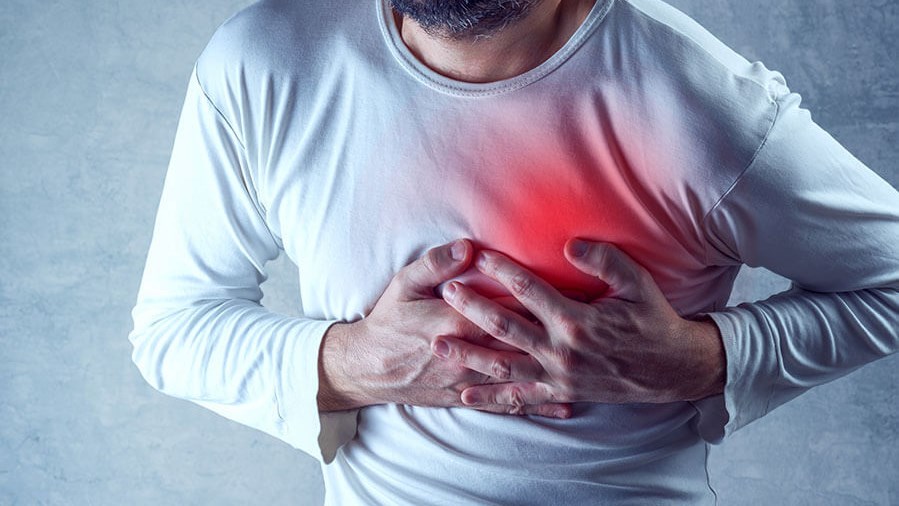When to Seek Emergency Medical Care for Heart Problems
Heart problems are a serious medical condition that requires prompt attention. While not all heart problems require emergency medical care, it can be challenging to determine when a trip to the emergency room (ER) is necessary.
A heart problem is a blanket phrase referring to a wide range of conditions that affect the function and structure of the heart. The heart is the muscular organ responsible for pumping blood throughout the body.
What Causes Heart Problems?
Heart problems do not occur by chance. Instead, they are encouraged by certain health conditions and lifestyle choices. They include:
- High blood pressure – damages the arteries and increases the workload on the heart.
- Diabetes – damages blood vessels and nerves that control the heart.
- Smoking – damages blood vessels.
- High levels of cholesterol in the blood – can contribute to the buildup of plaque in the arteries, leading to CAD.
- Obesity – can increase the workload on the heart and lead to high blood pressure, high cholesterol, and other risk factors.
- Family history and genetics – it heightens your risk of heart disease.
- Age – the risk of heart problems increases with age.
- Lack of exercise or diminished physical activity – contributes to obesity, high blood pressure, and other health problems.
- Chronic stress – raises blood pressure, causing other physiological changes in the body that can heighten the risk of heart disease.
Common Heart Problems
Some of the most common heart problems we treat at ER of Texas Emergency Room Emergency Center include the following:
- Coronary Artery Disease (CAD) : It occurs when the arteries supplying blood to the heart narrow or get blocked. The blockages are often due to the buildup of plaque.
- Arrhythmias : Features abnormal heart rhythms. They cause the heart to beat too fast, slow, or irregularly. Although some arrhythmias are harmless, others can be life-threatening.
- Heart valve disease : The valves that control blood flow in and out of the heart do not function properly.
- Heart failure : This is when the heart cannot pump enough blood to meet the body’s needs. It can be caused by other heart-related factors, including CAD, high blood pressure, and heart valve disease.
- Congenital heart defects : Feature structural problems with the heart muscle that are present at birth. They can range from mild to severe abnormalities, some requiring surgery.
- Cardiomyopathy : It is a disease of the heart that causes it to enlarge, thicken, or become rigid.
- Aortic aneurysm : It is a bulge in the wall of the aorta, the largest artery in the body. If the enlarged aorta ruptures, it can be life-threatening.
- Pericarditis : It is an inflammation of the sac that surrounds the heart.
Symptoms of Heart Problems
Different heart problems can affect your general health if you do not seek medical care in a walk-in clinic early. Further, the specific condition affecting your heart will cause varying symptoms from another patient. Some signs to prompt you to visit a doctor for a checkup are:
- Shortness of breath – it may feel like you can’t catch your breath, or you may feel like you’re gasping for air.
- Fatigue – you will feel like you don’t have the energy to do your usual activities.
- Nausea or vomiting
- Tightness or pain in your chest – may feel like pressure, tightness, or a squeezing sensation in the chest.
- Dizziness or lightheadedness – it almost feels like you are about to faint or that the room is spinning.
- Irregular Heart rate – racing or fluttering heartbeat.
- Swelling in the legs, ankles, or feet
- Cold sweat – even when you are not exerting yourself.
Signs You Need To Go to the ER for Heart Problems
If you are unsure whether you need treatment in an emergency rooms in the Dallas Fort Worth Metroplex, consider the following signs of severe heart problems:
- Severe and persistent chest pains – also called angina.
- Difficulty breathing (especially for prolonged periods).
- Fainting or loss of consciousness
- Bluish discoloration of the lips or fingers
- Stroke
- A heart attack
There are various types of heart problems you can have. Without a diagnosis, you may be treating the wrong problem. Besides, some health issues can have similar symptoms. Severe flu can cause shortness of breath. However, it may not be life-threatening as a heart problem. Instead of a typical Checkup, visit a no-wait ER near you if you suspect to have any of the mentioned symptoms.
We have 9 facilities spread across the DFW area with average wait times of less than 10 mins that are OPEN 24/7 located in Hurst, Colleyville, Frisco, Highland Village, Hillcrest, Uptown, Little Elm, Mansfield, and Texoma.



.jpg)